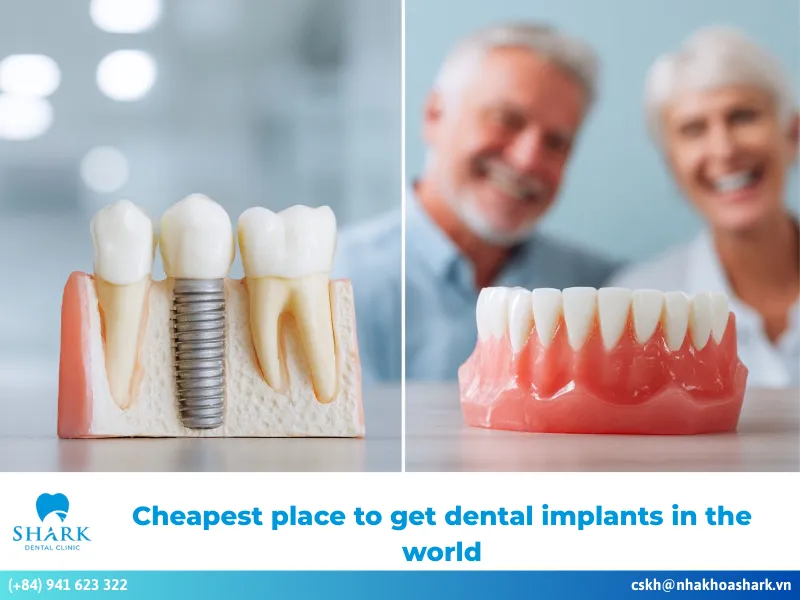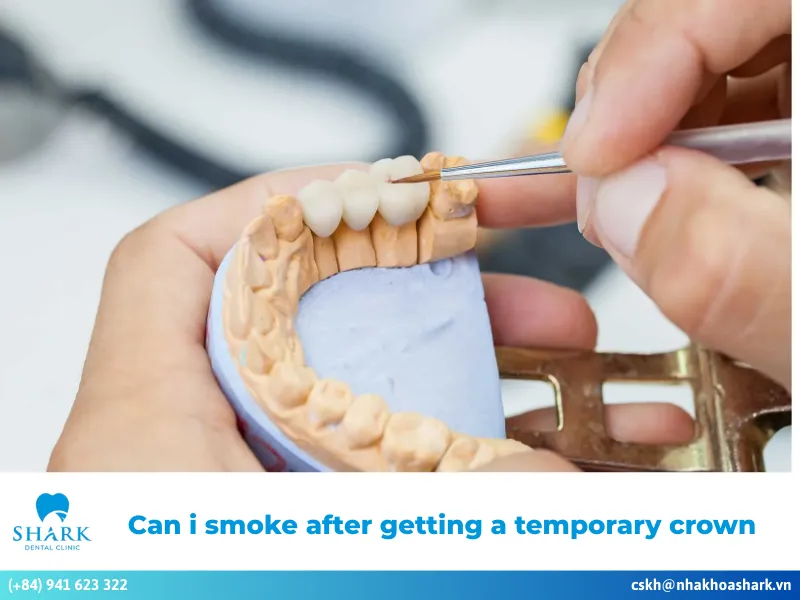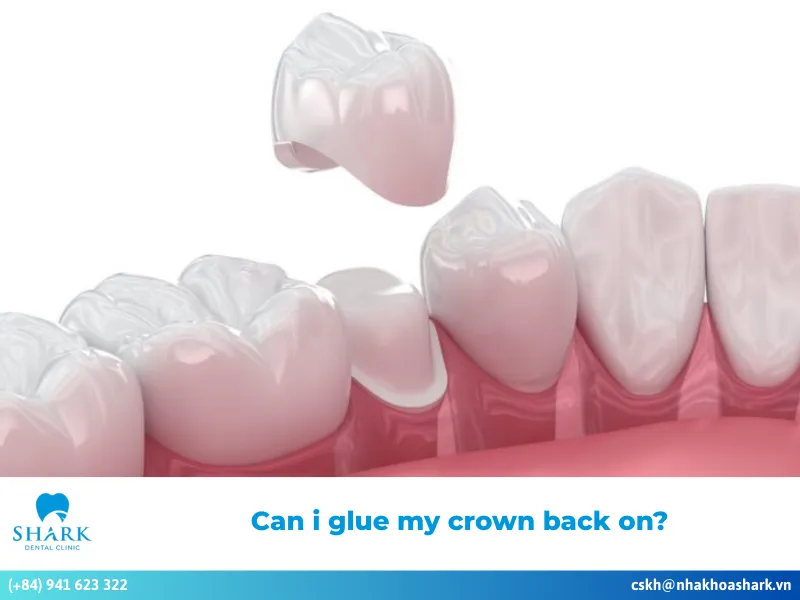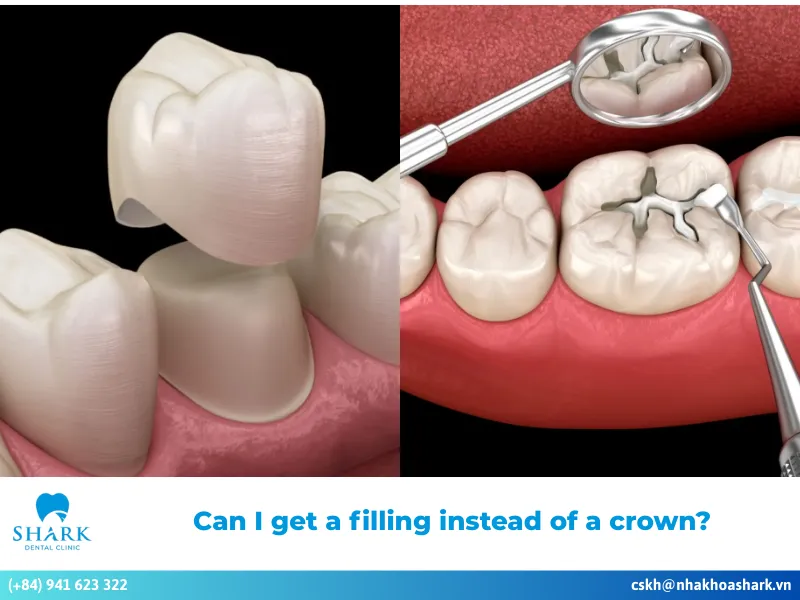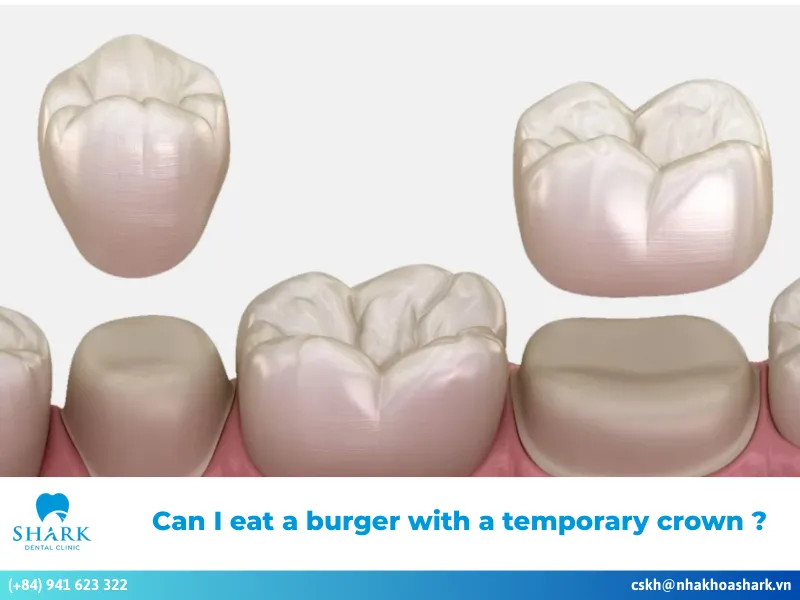Tooth sensitivity after a filling causes concern for many people and may discourage them from undergoing the procedure. In reality, dental filling is a simple technique, performed quickly with minimal impact. Post-filling sensitivity can stem from various causes. Refer to the information in this article to gain more insight and experience for the filling process.
Is it normal to have sensitive teeth after fillings?
Experiencing mild sensitivity and pain after a dental filling is a normal reaction, as the filling may not yet be fully compatible with the tooth, leading to some minor responses. However, if the sensitivity and pain persist for 1–2 weeks, it may be a sign of an abnormal issue. In such cases, it’s important to assess the cause and apply effective solutions for improvement.
Common causes of sensitive teeth after fillings
There are various causes of tooth sensitivity and discomfort after a dental filling. Each individual case should be carefully assessed in order to determine the most effective treatment approach.
Sensitive teeth
In some cases, tooth sensitivity after a filling is caused by naturally sensitive teeth that are easily irritated. This sensitivity often occurs right after the procedure but typically improves within a week.
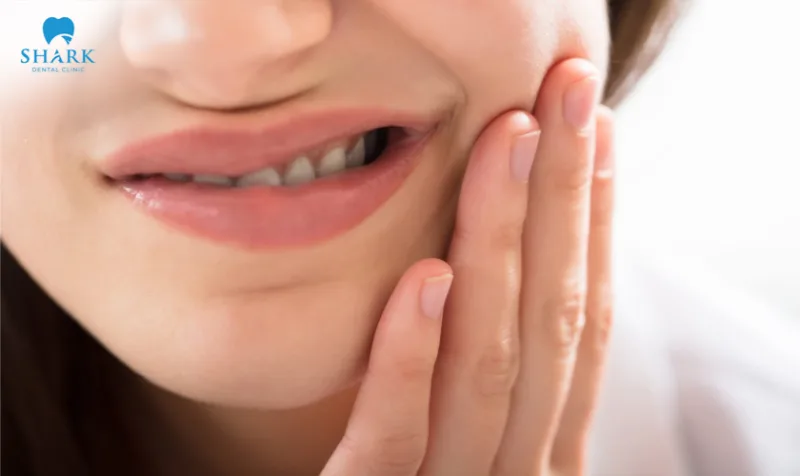
Incorrect filling procedure
Tooth sensitivity and pain after a filling may result from improper technique during the procedure. In some cases, the tooth may have been decayed or infected beforehand but was not properly cleaned and treated, leading to irritation after the filling.
Incomplete root canal treatment
Before the filling, the dental pulp may have been inflamed but not thoroughly cleaned. This can lead to pulp necrosis and irritation at the filling site, causing pain, abscess formation, and potentially resulting in tooth loss.
Low-Quality filling materials
Choosing small dental clinics that use unsafe filling materials can cause irritation after the procedure. These materials may shrink over time, affecting the gums and surrounding tissues.
Gap between the tooth and filling material
If the filling is not done properly, a gap may form between the filling material and the natural tooth. This allows dentinal fluid to seep in, causing prolonged sensitivity and pain during chewing and daily activities.
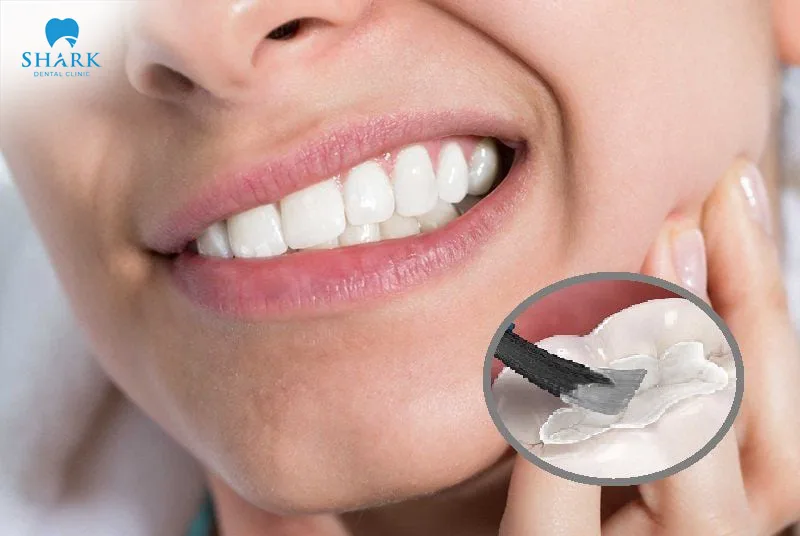
Laser light curing
After the filling procedure, the dentist will use a laser light to dry and stabilize the filling. However, prolonged exposure to the light may cause tooth sensitivity and pain.
Improper dental care and hygiene
Tooth sensitivity after a filling may stem from improper oral hygiene. Brushing too forcefully or using a hard-bristled toothbrush can affect the surface of the filling, causing pain and sensitivity after the procedure.
Condensation technique into the cavity
The materials are condensed into the cavity, causing dentinal fluid within the dentinal tubules to move, resulting in pain and discomfort. During the light-curing process, the filling may shrink toward one side, creating gaps between the filling and the dentin, leading to damage and pain during chewing and daily activities.
>>> Read more: How much do fillings cost in Vietnam?
Symptoms of sensitive teeth after fillings
After a dental filling, it is common to experience tooth sensitivity and slight swelling at first due to the adaptation process between the filling material and the tooth. However, if the sensitivity persists for an extended period, it may be accompanied by abnormal symptoms such as:
- Toothache, sensitivity, and heightened reaction to hot and cold foods.
- Pain and discomfort when chewing, difficulty biting into food.
- Prolonged tooth sensitivity even without chewing.
- Bad breath may occur, and the area around the filled tooth can become swollen.
- Bleeding gums accompanied by signs of pain and discomfort.
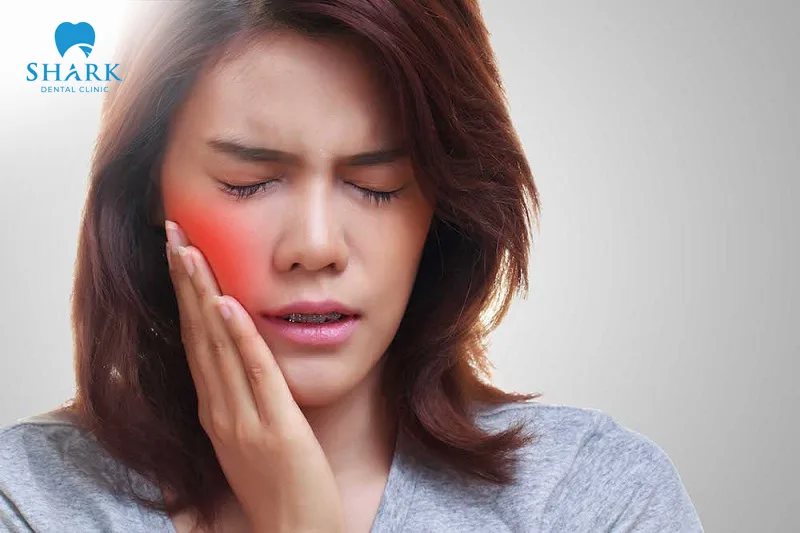
When to contact your dentist for sensitive teeth after fillings
After a dental filling, if you experience sensitivity for about 1–3 days, there’s no need to worry, as this is a normal reaction. However, if the sensitivity persists for many days and gradually worsens affecting your daily activities and life, you should visit a dental clinic promptly for examination and proper care.
The dentist will conduct an examination to identify the cause of the tooth sensitivity. If it is due to underlying dental conditions that were not thoroughly treated, the dentist will remove the existing filling, address the issue completely, then reapply the dental filling.
In cases where the sensitivity is caused by the filling material, it will need to be replaced, and safe technology will be applied to effectively improve the tooth’s condition, eliminating swelling or sensitivity.
How to control sensitive teeth at home
In case of tooth sensitivity and you haven’t visited the dental clinic yet, you can apply some methods at home to manage the discomfort:
- Use ice and a towel to apply a cold compress regularly to the areas where the teeth are swollen and showing signs of sensitivity.
- Apply ginger or mint to the filled tooth area to temporarily relieve pain and sensitivity.
- Rinse your mouth regularly with salt water, as salt has antibacterial properties that help relieve tooth sensitivity..
At-home treatments to relieve tooth sensitivity only provide temporary relief and are not highly effective. Therefore, if you experience prolonged sensitivity after a dental filling that affects your daily activities, you should visit a dental clinic for timely examination and support.
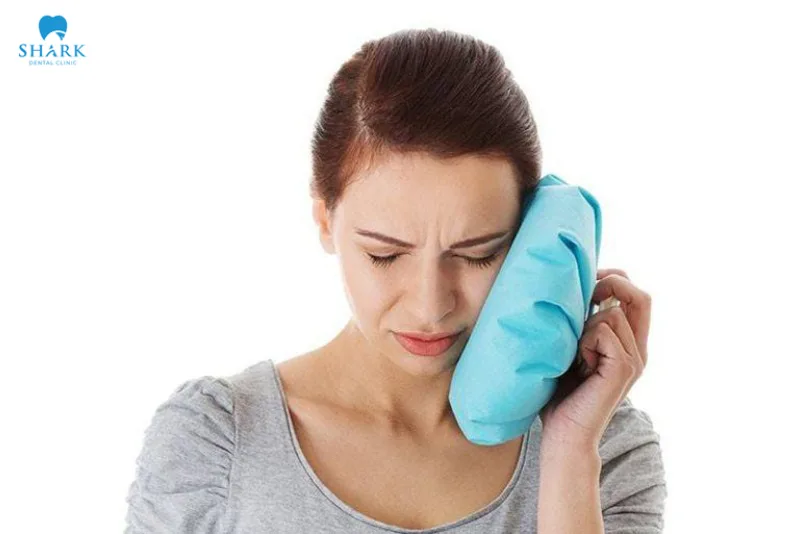
Preventing sensitive teeth after fillings
To avoid tooth sensitivity after a filling, you can apply some of the following preventive tips:
- Choose reputable dental clinics for fillings to ensure skilled dentists and a safe, effective procedure.
- Limit consumption of food and drinks that are too hot or too cold, as they can affect your teeth and cause sensitivity.
- Pay attention to a healthy diet; avoid biting or chewing overly tough or hard foods that may impact the teeth.
- Properly care for your gums by brushing your teeth at least twice a day. Use soft-bristled toothbrushes that are safe and gentle on the gums. Brush gently to avoid applying excessive external force.
- Use specialized toothpaste for sensitive teeth that is designed to reduce sensitivity and provide a more comfortable feeling.
- Have regular dental check-ups so the dentist can detect any unusual issues early, helping protect your teeth and prevent sensitivity from occurring.
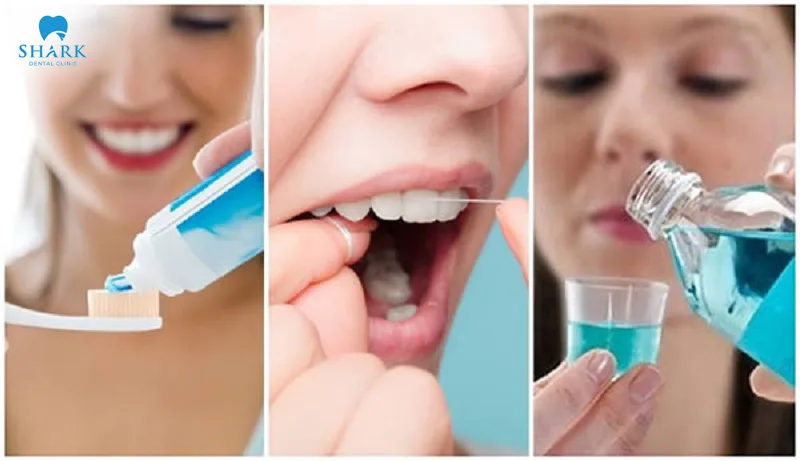
Tooth sensitivity after fillings is a common condition that causes many people to hesitate when considering this dental procedure. However, post-filling sensitivity can be improved and resolved effectively at reputable dental clinics. For the best results, patients are advised to carefully choose a trustworthy and safe dental provider to ensure oral health issues are treated properly. Shark Dental is a reputable dental center in Vietnam, trusted by many clients for safe and aesthetic dental services.





